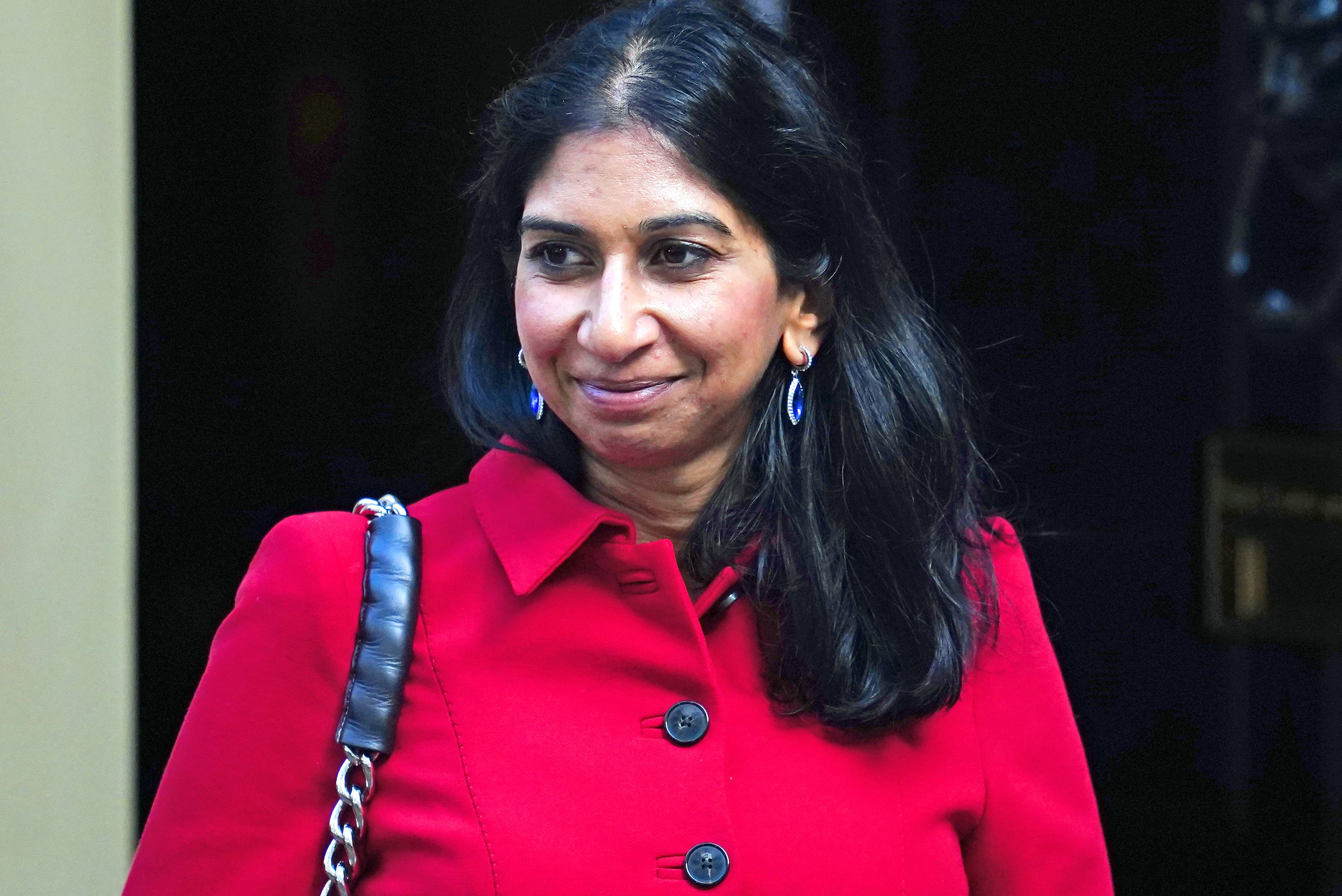Home secretary tells police she ‘expects’ them to cut murders by 20% - but does not say how
Letter from Suella Braverman confirms ‘incoherent’ policy floated by Liz Truss during leadership campaign

Your support helps us to tell the story
From reproductive rights to climate change to Big Tech, The Independent is on the ground when the story is developing. Whether it's investigating the financials of Elon Musk's pro-Trump PAC or producing our latest documentary, 'The A Word', which shines a light on the American women fighting for reproductive rights, we know how important it is to parse out the facts from the messaging.
At such a critical moment in US history, we need reporters on the ground. Your donation allows us to keep sending journalists to speak to both sides of the story.
The Independent is trusted by Americans across the entire political spectrum. And unlike many other quality news outlets, we choose not to lock Americans out of our reporting and analysis with paywalls. We believe quality journalism should be available to everyone, paid for by those who can afford it.
Your support makes all the difference.New home secretary Suella Braverman has told police leaders she “expects” them to cut crimes including murder by 20 per cent, without detailing how.
A letter sent to chief constables and elected commissioners across England and Wales on Friday confirmed that Liz Truss is pursuing targets originally proposed during her successful Conservative leadership bid.
“Reducing crime is a key prime ministerial commitment, and I expect the police, working with local partners, to cut homicide, serious violence and neighbourhood crime by 20 per cent,” Ms Braverman wrote.
No further details were given on how the cuts would be implemented or monitored by the government, and the demand is likely to create a rocky start for the new home secretary’s relationship with police.
Senior police sources have lambasted the plan as dangerous and unworkable, with one telling The Independent: “This is a throwback to the incoherent ignorance of past politicians.”
A 2015 report found that previous crime targets created “perverse incentives to mis-record crime” and caused police to respond to some offences selectively “to the detriment of other calls”.
It was commissioned by the then-home secretary Theresa May, who said at the time: “Targets don’t fight crime, they hinder the fight against crime.”
The proportion of crimes solved has been dropping, with prosecution rates at a record low of just 5.6 per cent of all offences while police-recorded crime is at a record high.
Ms Braverman wrote that she was “deeply concerned” by the figures, particularly the tiny proportion of rape cases that resulted in charges, and wanted to improve prosecution rates.
Official reports have warned of a national shortage of detectives, while Boris Johnson’s push to recruit 20,000 extra constables in three years is “creating an inexperienced workforce”.
Andy Cooke, HM Chief Inspector of Constabulary, previously told The Independent that police are unable to go “back to basics” on crime because the impact of years of austerity on other public services has left them spending up to a third of their time on non-policing matters, such as medical emergencies and mental health incidents.
“It needs systemic change, not just change within policing,” he said. “Policing needs to have sufficient time and resources to go and do what the public would expect them to do.”
Ms Braverman used Friday’s letter to set out her key priorities for police, saying Ms Truss’ new government had a “crime cutting agenda”.
She praised the police service for successfully delivering the huge operation triggered by the Queen’s death, but also said that “high-profile incidents” had damaged public confidence.
“Culture and standards in the police have to change, particularly in London,” the home secretary wrote.
“The public have a right to expect that the police get the basics right … unfortunately, there is a perception that the police have had to spend too much time on symbolic gestures, than actually fighting criminals. This must change.
“Initiatives on diversity and inclusion should not take precedence over common sense policing.”
No examples of such initiatives or gestures were given in the letter, which went on to claim that “overall crime, excluding fraud and computer misuse” had fallen.
Boris Johnson and Priti Patel were reprimanded by the UK’s statistics watchdog for cutting fraud, the UK’s largest crime, out of public statements on crime in February.
“If fraud and computer misuse are counted in total crime as they should be, total crime in fact increased by 14 per cent between the year ending September 2019 and the year ending September 2021,” a letter said.
Ms Braverman said she wanted police to send officers in person to burglaries and focus on tackling “neighbourhood crime”, drug-fuelled offences and anti-social behaviour.
Addressing the six forces put in special measures, including the Metropolitan Police, she told them she expected them to make the “necessary improvements”.
“At its best, policing in this country is the best in the world,” the home secretary wrote. “That must and can be the standard that all forces hit.”
A spokesperson for the National Police Chiefs’ Council said it would consider the letter and respond to the home secretary, adding: “We share the same goal of reducing crime and increasing confidence.”



Join our commenting forum
Join thought-provoking conversations, follow other Independent readers and see their replies
Comments